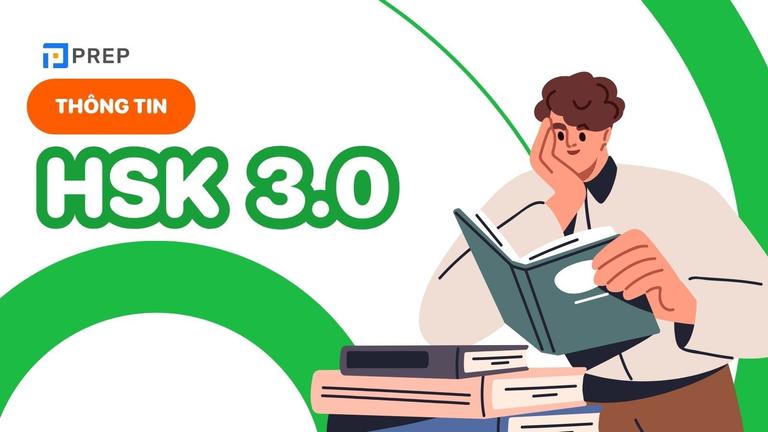Đề bài, bài mẫu IELTS Writing Task 2 Schools should not force students to learn a foreign language
“Learn foreign language” là chủ đề thường xuyên xuất hiện trong bài thi IELTS thực chiến. Nếu gặp phải đề bài IELTS Writing Task 2 Schools should not force students to learn a foreign language, bạn sẽ xử lý như thế nào? Cùng PREP tìm hiểu từ vựng, dàn ý và bài mẫu band 7+ siêu chất lượng dưới đây bạn nhé!

I. Đề bài và dàn bài IELTS Writing Task 2 Schools should not force students to learn a foreign language
Trước khi tìm hiểu bài mẫu IELTS Writing Task 2 Schools should not force students to learn a foreign language, hãy cùng PREP tìm hiểu nhanh đề bài đầy đủ cùng dàn ý chi tiết dưới đây bạn nhé!
1. Đề bài
You should spend about 40 minutes on this task.
Write about the following topic:
Since some children do not seem to have natural abilities to learn a language, schools should not force students to learn a foreign language. To what extent do you agree or disagree?
Give reasons for your answer and include any relevant examples from your own knowledge or experience.
Write at least 250 words.

2. Dàn bài
Tham khảo nhanh dàn bài cụ thể IELTS Writing Task 2 Schools should not force students to learn a foreign language dưới đây bạn nhé!
|
Introduction |
|
|
Why schools should have a social responsibility to discouraging children from eating junk food |
|
|
Why parents should take responsibility for their children's eating habits |
|
|
Conclusion & Opinion |
|
II. Bài mẫu IELTS Writing Task 2 Schools should not force students to learn a foreign language
Sau khi tìm hiểu xong đề bài và dàn ý về IELTS Writing Task 2 Schools should not force students to learn a foreign language, hãy cùng PREP tham khảo nhanh bài mẫu siêu chất lượng dưới đây bạn nhé!
Language learning in schools has been an ongoing discussion in society. On one side of the debate, people argue that educational institutions should not compel students to learn a foreign language, especially those who do not possess a natural proficiency. I agree with this sentiment, despite some claims that language learning should be compulsory at school.
On the one hand, a policy of mandatory language learning at school may be reasonable. Firstly, it can set schoolchildren up for success in the future. Specifically, proficiency in an additional language expands a child’s cognitive abilities, increasing their adaptability, creativity and problem-solving skills. It could, therefore, open many doors for them to improve their career prospects or develop intellectually. Secondly, a school which has implemented the aforementioned scheme can enhance its prestige. By dispensing a linguistically diverse curriculum, such a school can attract students from wealthy backgrounds, or allow itself to receive better funding. At the very least, it could offer additional languages as electives, which the learners could choose to do or opt out of pursuing.
There is an argument against mandatory language education in schools, however. Linguistic talent, just like an affinity for arts or sports, varies between individuals, so forcing a student who lacks this ability to study a foreign language would cause them to struggle academically. This burden may lead to a sense of failure and inferiority, thereby hampering their overall academic progress. Even more so, this could also diminish the interest of a child in learning, eventually leading to negative implications. In addition, having to provide foreign language lessons to many students who are neither talented nor interested in them is likely a waste of resources, straining public schools’ budgets. Unless the education sector receives more government funding, mandating such a policy at school will be difficult.
In conclusion, while acknowledging the various benefits of language learning, I disagree with compulsory foreign language education at school. Educational institutions ought not to impose, but rather encourage and facilitate language acquisition in a way that creates a voluntary, enjoyable and meaningful experience for all students.
Từ vựng ăn điểm được sử dụng trong bài mẫu IELTS Writing Task 2 Schools should not force students to learn a foreign language:
- Compel (v.): bắt buộc
- Proficiency (n.): sự thành thạo
- Sentiment (n.): ý kiến
- Compulsory/mandatory (adj.): bắt buộc
- Cognitive (adj.): về mặt nhận thức
- Adaptability (n.): khả năng thích nghi
- Prestige (n.): danh tiếng
- Dispense sth (v.): cung cấp điều gì đó
- Elective (n.): môn học tự chọn
- Affinity (n.): tài năng thiên bẩm
- Struggle (v.): vất vả
- Inferiority (n.): sự kém cỏi
- Hamper sth (v.): cản trở điều gì đó
- Diminish sth (v.): làm giảm điều gì đó
- Strain sth (v.): gây áp lực lên điều gì đó
- Impose (v): áp đặt
Tham khảo thêm bài viết:
- Đề bài, bài mẫu IELTS Writing Task 2 Students leave high school without learning the way how to manage money
- Đề bài, bài mẫu IELTS Writing Task 2 Ambition band 7+
Để có thể tiến bộ, bài viết IELTS Writing của bạn cần được chỉ ra lỗi sai và sửa chữa. Nếu bạn chưa tìm được người bạn đồng hành trong quá trình này, phòng luyện viết ảo VWR PREP luôn sẵn sàng trợ giúp cho bạn.
- PREP ứng dụng Trí tuệ nhân tạo AI để nhận diện giọng nói, từ vựng và khả năng học sâu (Deep Learning) độc quyền từ 45,751 bài chấm chữa chi tiết của thầy cô Prep cho học viên.
- Ghi nhận và đưa ra lời khen ngợi động viên khi chỉ ra cho bạn ưu điểm của bài viết. Việc này giúp bạn phát huy những điểm tốt, tiếp tục áp dụng vào lần làm bài sau
- Phát hiện lỗi sai và đưa hướng sửa tức thì cho bài viết của bạn. Bạn không tốn thời gian chờ đợi, mông lung không biết bài mình đúng hay sai, cần phải sửa như thế nào…
- Nâng cấp từ chính bài của bạn lên 1 phiên bản khác band điểm cao hơn (về từ vựng, sự mạch lạc, diễn đạt,...) nhưng vẫn đảm bảo ý tưởng của chính bạn.
Còn vô vàn tính năng đặc biệt của phòng viết ảo đang chờ bạn đến khám phá, nhanh tay ấn vào link dưới đây bạn nhé!
CHINH PHỤC IELTS WRITING TASK 2 CÙNG PHÒNG WRITING ẢO BẠN NHÉ!
Hy vọng sau khi đọc xong bài viết trên đây, bạn đã nắm được đề bài cụ thể, dàn ý chi tiết cùng bài mẫu IELTS Writing Task 2 Schools should not force students to learn a foreign language chất lượng nhất. Thường xuyên theo dõi PREP để cập nhật thường xuyên những kiến thức tiếng Anh bổ ích bạn nhé!

Chào bạn! Mình là Hiền Hoàng, hiện đang đảm nhận vai trò quản trị nội dung sản phẩm tại Blog của website prepedu.com.
Với hơn 5 năm tự học các ngoại ngữ như tiếng Anh, tiếng Trung và ôn luyện một số kỳ thi IELTS, TOEIC, HSK, mình đã tự đúc rút được nhiều kinh nghiệm để hỗ trợ hàng nghìn người đang gặp khó khăn trong việc học ngoại ngữ. Hy vọng rằng những chia sẻ phía trên sẽ giúp ích cho bạn trong quá trình tự ôn luyện thi hiệu quả tại nhà!
Bình luận
Nội dung premium
Xem tất cảLộ trình cá nhân hoá
Có thể bạn quan tâm
Kết nối với Prep

MSDN: 0109817671.
Địa chỉ liên hệ: Tòa nhà Vinaconex, 34 Láng Hạ, phường Láng, TP Hà Nội.
Trung tâm CSKH tại HN: Lô 21 C2 Khu đô thị Nam Trung Yên, phường Yên Hòa, TP Hà Nội.
Trung tâm CSKH tại HCM: 288 Pasteur, Phường Xuân Hòa, TP Hồ Chí Minh
Trụ sở Công ty: Số nhà 20, ngách 234/35 đường Hoàng Quốc Việt, phường Nghĩa Đô, TP Hà Nội.
Phòng luyện ảo - Trải nghiệm thực tế - Công nghệ hàng đầu.
Hotline: 0931 42 8899.
Trụ sở Công ty: Số nhà 20, ngách 234/35 đường Hoàng Quốc Việt, phường Nghĩa Đô, TP Hà Nội.
Giấy chứng nhận hoạt động đào tạo, bồi dưỡng số 1309/QĐ-SGDĐT ngày 31 tháng 07 năm 2023 do Sở Giáo dục và Đào tạo Hà Nội cấp.

























